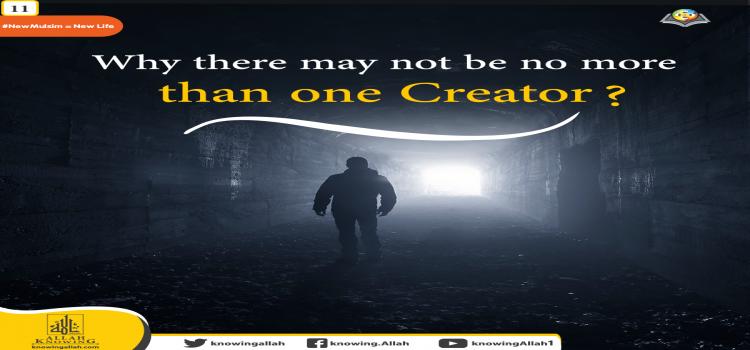Some Evidence of His Truthfulness and Honesty Before and After the Mission
The Incident of the Slander (against Aisha, the Prophet's Wife)
The hypocrites tried to stain the honor of Aisha, the lovely wife of the Prophet (sws). Here is a part of the story as she told it: when the liars defamed her honor, she became so ill that she asked the Prophet (sws) for permission to go to her parents' home. The Prophet (sws) agreed. She asked her mother about what the people were saying. Her mother explained what had been said, and the matter increased her illness. She kept crying, night and day. The Prophet (sws) was so distraught and upset at the harm being inflicted upon him by the things they were saying about his wife's honor. Still worse, the Prophet (sws) had not received any inspiration concerning his
wife, Aisha.
Two parties of the believers were fighting—`Aws and Khazraj—and their voices were raised while the Prophet (sws) was standing on the pulpit, trying to get them to settle down and be silent. The Prophet (sws) was full of bitterness and sadness for being harmed through his wife.
The situation remained the same for about a month; no inspiration came concerned his wife. Then, from above the seven heavens, to protect the honor of His prophet (sws), Allah declared Aisha's innocence.
The point of this incident is in the delay of the inspiration declaring the innocence of the Prophet's (sws) wife. For a month, the Prophet (sws) waited, though his suffering and sadness were deep. Allah Almighty could easily have cleared the matter up in a second, but Allah wished to test the Prophet (sws) and try his patience.
He did not inform the people of anything except what Allah asked of him, and only at the time Allah chose. If the Prophet (sws) was not truly a prophet, he could have declared his wife's innocence immediately when he heard the hypocrites' lies, to keep and maintain her honor, yet he remained true and did not utter a single word of his own. He was the Honest and True in all
Allah asked of him. Again to prove the trustworthiness of the Messenger (sws), let us read the following verse.
Allah says,
عَفَا ٱللَّهُ عَنكَ لِمَ أَذِنتَ لَهُمۡ حَتَّىٰ يَتَبَيَّنَ لَكَ ٱلَّذِينَ صَدَقُواْ وَتَعۡلَمَ ٱلۡكَٰذِبِينَ
[ التوبة : 43 ].
It means,
{May Allah forgive you (oh Muhammad, sws). Why did you grant them leave (to remain behind), until those who told the truth were seen by you in a clear light, and you had known the liars?}
[Al-Tawba 9: 43]
This verse of the Quran was revealed concerning certain people who asked the Prophet (sws) to be excused from attending a battle. Allah Almighty wanted to explain the matter to the Prophet (sws). Those people intended not to go, whether the Prophet (sws) gave them permission or not.
Allah says,
عَبَسَ وَتَوَلَّىٰٓ [1] أَن جَآءَهُ ٱلۡأَعۡمَىٰ [2] وَمَا يُدۡرِيكَ لَعَلَّهُۥ يَزَّكَّىٰٓ [3] أَوۡ يَذَّكَّرُ فَتَنفَعَهُ ٱلذِّكۡرَىٰٓ [4] أَمَّا مَنِ ٱسۡتَغۡنَىٰ [5]فَأَنتَ لَهُۥ تَصَدَّىٰ [6]وَمَا عَلَيۡكَ أَلَّا يَزَّكَّىٰ [7] وَأَمَّا مَن جَآءَكَ يَسۡعَىٰ [8]وَهُوَ يَخۡشَىٰ [9]فَأَنتَ عَنۡهُ تَلَهَّىٰ
[ عبس : 1-10 ].
It means,
{(The Prophet, sws) frowned and turned away * because there came to him the blind man (i.e. 'Abdullâh bin Umm Maktûm, who came to the Prophet, sws, while he was preaching to Quraish chiefs). * And how can you know that he might become pure (from sins)? * Or he might receive admonition, and the admonition might profit him? * As for him who thinks himself self-sufficient, * To him you attend; * What does it matter to you if he will not become pure (from disbelief: for you are only a messenger and your duty is just to convey the message). * But as to him who came to you running, * and is afraid (of Allah and His punishment). * Of him you are neglectful and divert your attention to another.}
[`Abasa 80: 1-10]
These noble verses explain that Prophet Muhammad (sws) was keen to make one of the greatest unbelievers embrace Islam, but while he was trying to convince him, a poor, blind Muslim man came to ask for something. The man was insistent in his question, so he turned
away from him.
The Prophet only wished that the man had come at another time so that he would be able to convince the unbeliever. That is why he frowned and turned away, but Allah Almighty censured His prophet, instructing him to treat equally rich and poor, weak and strong, master and slave, man and woman, elder and younger.
In the end, Allah Almighty guides whom He wishes to the straight way, and He uses extreme wisdom in doing that. Allah Almighty censured His prophet twice: once, when he permitted some people not to attend battle, and again, when he neglected the blind man to convince the wealthy unbeliever. It is out of Muhammad's (sws) honesty and trustworthiness that both incidents are mentioned. He made no attempt to hide them. This is clear evidence that he was honest and true. He related everything that was revealed to him. He did not conceal any bit of information, even when he might have had a personal reason to do so. He truly is the Prophet of Allah.


